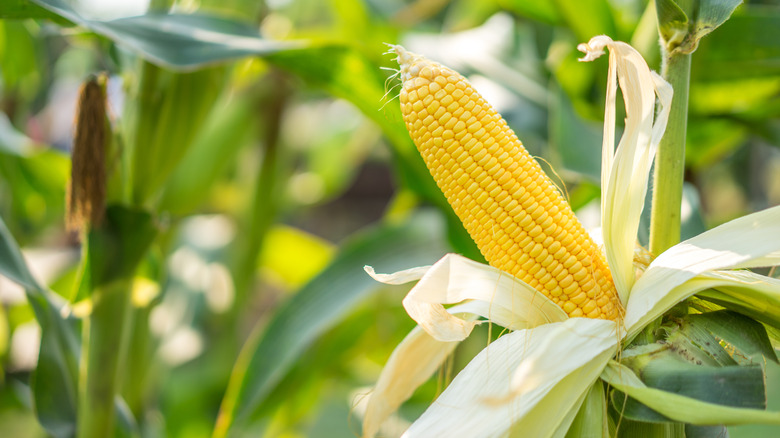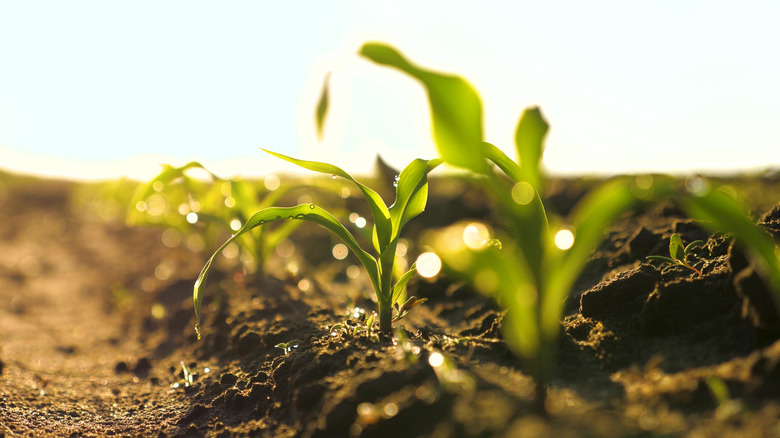New Study Reveals Just How Bleak The Future Is For Corn
Where you live, are you able to enjoy local corn when it's in season? If so, then you know how much of a treat it is, with sweet summer corn perhaps the most eagerly anticipated of all seasonal produce. Fresh-from-the-stalk corn brings its bright color and intense sweetness to so many classic summer dishes, from feta-flecked corn salad to the citrusy, cheese-sprinkled grilled corn cobs known as elotes.
Many of us living in the United States are more than familiar with fresh, local summer corn, as the crop is grown in most U.S. states with production concentrated in the Heartland region (via USDA). But according to new research by Emily Burchfield, an assistant professor at Emory University's Department of Environmental Sciences, climate change is rapidly changing where corn in the U.S. can grow. According to ScienceDaily, which published a press release about study done by Burchfield, the researcher predicts that by 2100, the more southern-lying states that make up the Corn Belt — including Nebraska, Iowa, and Illinois — will likely no longer be able to grow corn, due to the climactic changes that Burchfield's research projects.
Cultivation of crops including corn, soy, alfalfa, and wheat will have to move north
According to a press release published in ScienceDaily, environmental scientist Emily Burchfield recently shared new research demonstrating the instability of major U.S. commodity crops including corn. The Emory University professor's research was published in Environmental Research Letters, and takes a look at numerous crops, including corn, soy, alfalfa, and wheat, with some sobering results. According to Burchfield's projections, a warming climate is having major impacts on the viability of those crops, which, she predicts, will have to be cultivated in more northerly states by 2100 if no major agricultural advances are discovered to mitigate these effects.
"Climate change is happening, and it will continue to shift U.S. cultivation geographies strongly north," Burchfield wrote in the release. "It's not enough to simply depend on technological innovations to save the day. Now is the time to envision big shifts in what and how we grow our food to create more sustainable and resilient forms of agriculture."
Emily Burchfield advocates shifting away from agricultural monocropping
In a press release, environmental scientist Emily Burchfield notes that farmers are already investing in technological advances that might help crops better weather climate change, such as genetic modification. But she argues that shifting the U.S. approach to agriculture would be a better way to meet the climate-related challenges of the next few decades, from a focus on intensive monocropping of just a few varieties of grains to a more diverse network of growing that focuses on growing the crops that are better suited to farmers' particular regions.
"We need to switch from incentivizing intensive cultivation of five or six crops to supporting farmers' ability to experiment and adopt the crops that work best in their particular landscape," Burchfield wrote. "It's important to begin thinking about how to transition out of our current damaging monoculture paradigm toward systems that are environmentally sustainable, economically viable for farmers and climate-smart."


